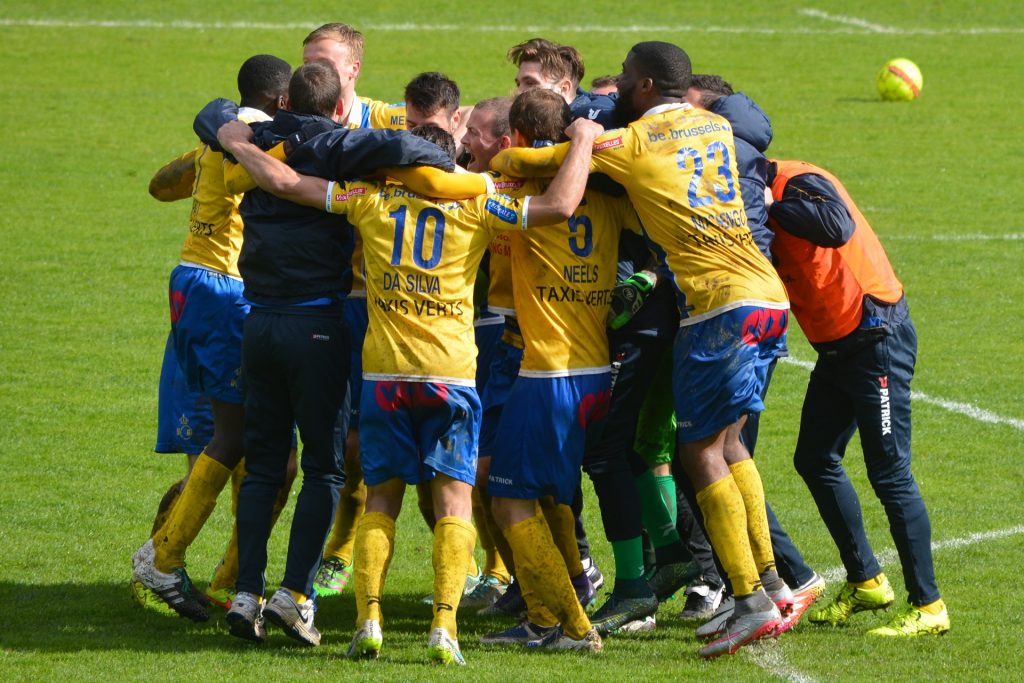 With the Lionesses roaring to victory in the European Championships and the Commonwealth Games in full swing, summer 2022 is set to be a fantastic summer of sport. We sat down with Professor Geoff Walters, Executive Dean of the School of Business, Economics and Informatics to discuss his research and teaching in sport management and the work still to do to promote diversity and inclusion in sport at all levels.
With the Lionesses roaring to victory in the European Championships and the Commonwealth Games in full swing, summer 2022 is set to be a fantastic summer of sport. We sat down with Professor Geoff Walters, Executive Dean of the School of Business, Economics and Informatics to discuss his research and teaching in sport management and the work still to do to promote diversity and inclusion in sport at all levels.
Tell us how you got into researching and teaching on sport management
I initially joined Birkbeck as a researcher in the Football Governance Research Centre in 2003, which at the time was at the forefront of research into the governance of the football industry and the supporters trust movement. Birkbeck was also the first to launch an MSc in Sports Management, so it was an exciting place to come and study for my PhD, which focused on the football industry. At that time, academic research on governance in sport, and the teaching of sport management, was in its infancy and so coming to Birkbeck was a great opportunity.
Can you give us an example of how research in this area has an impact on the world of sport?
My colleague Dr Richard Tacon and I started looking at organisational governance (boards) in 2010 and realised there was not a great deal written on this at the time. We have looked specifically at the UK context, trying to understand how policy shapes board roles, primarily in National Governing Bodies of Sport in the UK. Through sector-wide reports, in-depth case studies, workshops and training, we have helped to raise the level of public debate, improve organisational practice and more recently, through our involvement with the Diversity in Sport Leadership project with UK Sport and Sport England, contributed to greater diversity and inclusion within boards across many different sports.
Sport has traditionally been a male dominated industry – what more do you think needs to be done to increase inclusive leadership in sports?
There have been significant changes in the sporting sector due to the Sports Governance Code that was introduced in 2016. This mandated minimum gender diversity requirements on the Board of any organisation funded by UK Sport or Sport England. All funded bodies also have to implement a Diversity Action Plan. These changes have accelerated inclusion within the sector, which at board level, has historically lacked diversity. There are also things that we at Birkbeck are seeking to do. This year, we are committing to a pledge with Women in Football by hosting bi-annual career events for female students interested in the football industry alongside our annual Birkbeck Women in Sport Scholarship. Nevertheless, there are still some parts of the sports industry (e.g. within professional team sports) where there is a lack of representation at board level. There is also a need for more understanding of power relations within sport (and sport organisations) and how they construct gender and race. These are important issues to address so that representation is not seen as merely a box that needs ticking.
How do you think sport can make a positive influence in society today?
I think sport is dichotomous. Yes, on the one hand it can make a positive difference to people’s lives, supporting their development or having health benefits for example. However, this requires joined up Government policy and not simply the usual platitudes about the role of sport without real commitment to supporting positive change. I think this goes for sporting events also – the legacy of the London Olympics for example has not really delivered on much of what it promised in many areas such as sporting participation and creating a healthier nation. Perhaps too much is expected of sporting events, but with competitive bids requiring a strong narrative and certain nations still using sport events as a way to exercise soft power or greenwashing/sportwashing, then the positive influence of sport events will remain a divisive topic.
Any final messages to our sports people over the next few weeks?
Good luck, and I hope you can replicate the success of the England Women’s team!


 I am writing this as the January transfer window heads towards its final few frenetic hours, with breathless TV pundits reporting any last minute deals that clubs may make. The headlines during January have, as usual, focussed on the big money multi-million pound transfers, with
I am writing this as the January transfer window heads towards its final few frenetic hours, with breathless TV pundits reporting any last minute deals that clubs may make. The headlines during January have, as usual, focussed on the big money multi-million pound transfers, with 